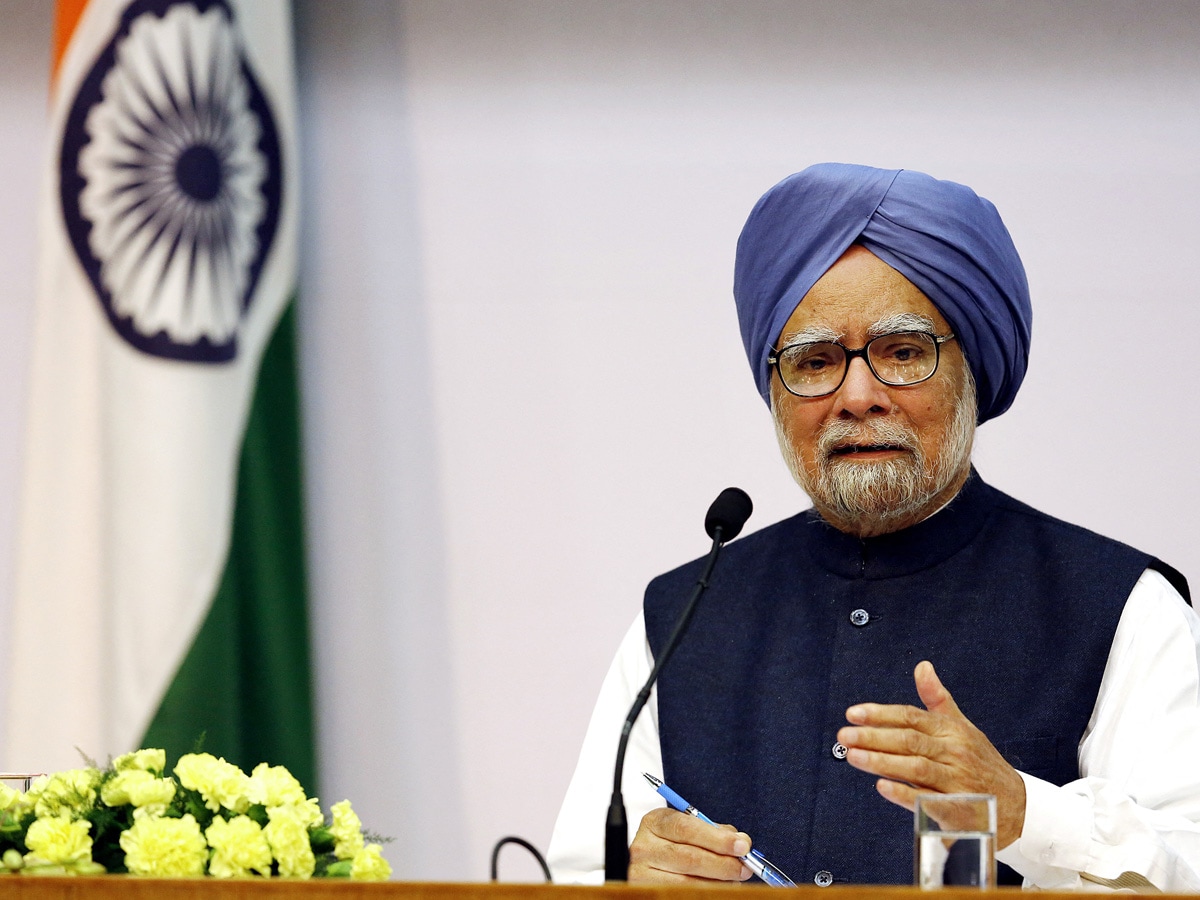 Dr Singh as prime minister became a torchbearer of reforms and one of the greatest global ambassadors of the country, helping us attract much-needed foreign capital and investment, and helping us reduce the severe inequities the country was hindered by. Image: Harish Tyagi/Pool/AFP
Dr Singh as prime minister became a torchbearer of reforms and one of the greatest global ambassadors of the country, helping us attract much-needed foreign capital and investment, and helping us reduce the severe inequities the country was hindered by. Image: Harish Tyagi/Pool/AFP
I was felicitated by Dr Manmohan Singh with a gold medal when I graduated with a master’s in economics from Delhi School of Economics. Now when I look back, it is not the thrill of the medal, but the personality of the soft spoken, distinguished leader and eminent economist who felicitated me that excites me.
Singh was the then-finance minister who had just initiated India’s reform journey with the famed budget of July 1991. He was being lauded and celebrated by all for opening up of the Indian economy. However, what strikes me in hindsight is that, on that day, he did not make the moment about himself or his reforms. He did not talk about what he had achieved… instead he spoke to us about our accomplishments and dreams. He encouraged me to pursue a PhD in economics under a good professor and said I was welcome to come seek his advice at any point. His sagacity and wisdom gave the 23-year-old me one of my biggest fan girl moments.
Over the next few years, Singh laid the foundation and did all the necessary groundwork to make India one of the world’s fastest-growing economies. The financial sector was transformed under his guidance and young people like me got to work in global firms, learn from the best-in-class and earn international-level salaries. Singh opened up the mutual fund industry to private and joint sector participation, and today, it is the key conduit for channelling the savings of millions of Indians into the stock markets and into productive areas of growth rather than hoarding of cash and gold that Indians did in the past.
The stock markets today have provided access to a large number of first-generation entrepreneurs to access capital and create world-class companies. In 2024, Indian IPO issuance exceeded that of the US markets. The foundation of this robust market was laid by Singh who said, “For many investors, mutual funds are a more suitable investment vehicle than direct ownership of shares.”
I had the good fortune on calling on Singh when he was finance minister with my global colleagues several times. In every meeting, he was punctual and listened carefully. He always asked the international bankers on what India could do to allay the concerns of global investors. His objective was clear: To improve the efficiency of the Indian system, reduce bureaucracy and attract more foreign investment. Not once did he dismiss our inputs or suggestions on ways to reduce controls or simplify regulations. He would absorb all the suggestions and advice on how to improve the productivity of the private sector and efficiency of the state-owned sector. His amazing team led by likes of NK Singh and Montek Singh Ahluwalia would even do copious follow-ups on some of the inputs.
